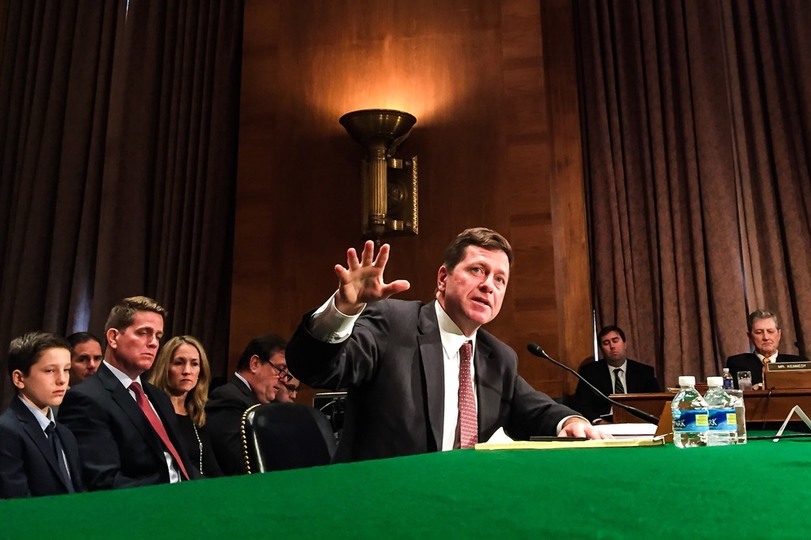
 SEC chairman Jay Clayton. (Photo: New York Law Journal)
SEC chairman Jay Clayton. (Photo: New York Law Journal)
In a long, open meeting with a sprawling agenda on Thursday, the Securities and Exchange Commission approved a proposal that would allow many ETFs to come to market without first obtaining exemptive relief from the Investment Company Act of 1940.
The commission also approved a proposal that would allow it to limit whistleblower awards, and it adopted amendments to current rules concerning liquidity risk disclosure by open-end mutual funds, reporting requirements of smaller public companies and the use of a certain format, known as Inline XBRL, in corporate and fund filings.
The ETF proposal, approved unanimously, updates rules that are 26 years old and have resulted in over 300 exemptive orders, creating "an eclectic regulatory quilt" with "personalized exemptions," said Commsision Kara Stein.
Durng that time, the ETF market has grown to more than 1,900 funds with $3.4 trillion in assets held by one of every three investors, according to SEC Chairman Jay Clayton.
Under the proposal, which will be out for public comment for 60 days, the majority of ETFs would not have to obtain exemptive relief to come to market but would be required to provide daily portfolio holdings on their websites as well historical information regarding premiums and discounts of their market price to their net asset value and bid-ask spread information.
In addition, the ETFs would be allowed to use a "custom basket" of holdings they choose when creating or redeeming shares rather than a "pro-rata representation" of the portfolio, if they adopt policies and procedures detailing the parameters they use for custom baskets to show they are in the best interest of the ETF and its shareholders.
The policies and procedures would to be designed to prevent authorized participants that are central to the trading of ETFs from dumping or cherry-picking assets they deliver to ETF issuers.
Stein explained that the difference between pro-rata and custom baskets is like the difference between a slice of cake that has all the ingredients of the larger cake (pro-rata) and a slice that has only some ingredients (custom) but tastes similar.
Leveraged and inverse ETFs and ETFs structured as unit investment trusts would not be able to come to market using the proposed streamlined rule. ETFs now operating under exemptive relief would have to comply with the new proposed rule, which if adopted, would standardize the approval process for most ETFs.



